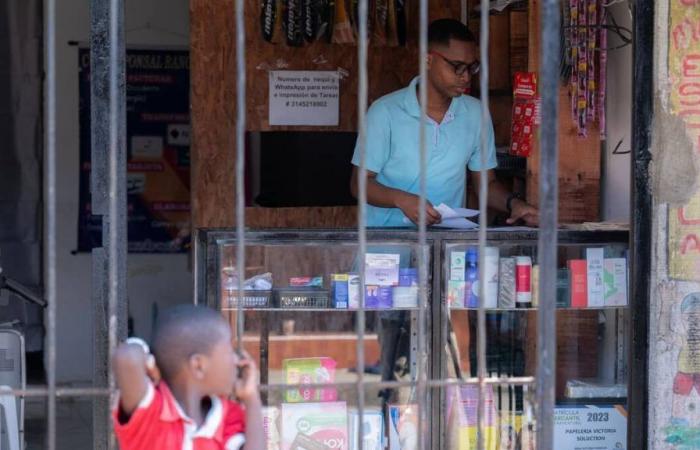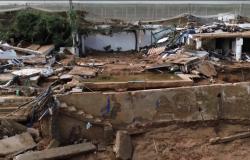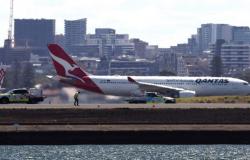According to the criminal laws of the neighborhood where he grew up, Franklin Mina should have been part of a gang. But, at 27, he runs a small business thanks to a subsidy from the Colombian government which aims to financially help young people “so as not to kill”.
The young man grew up in Buenaventura, Colombia’s largest port on the Pacific, the scene of bloody clashes between two rival gangs, Los Shottas and Los Espartanos.
“Since I was a child, I have known what a gun is, what a bullet is,” he tells AFP. “It’s complicated to live in a neighborhood hard hit by violence,” adds neighborhood resident Alberto Lleras Camargo. “There are after-effects,” he assures.
Franklin Mina avoided delving into crime thanks to a subsidy of about $250 a month from the government of left-wing President Gustavo Petro. It is intended for young people aged 14 to 28 who are likely to join armed groups.
With the money he receives, he was able to start a small business a few months ago. He also took social worker courses.
Photo Luis ACOSTA / AFP
“These are thousands of young people that we are going to pay not to kill, not to participate in violence, to study. We will help them,” Mr. Petro said shortly before the launch of the program last October.
To date, nearly 3,000 young people have benefited from it in Buenaventura, but also in Bogota and Medellín, where the government is in dialogue with the criminal organizations inherited from the late drug lord Pablo Escobar, with a view to their disarmament.
The opposition, however, claims that the program, officially titled “Youth in Peace,” actually funds members of armed groups. She also denounces corruption in the selection of beneficiaries.
“Beginning of change”
To benefit from the assistance, for a maximum duration of 18 months, young people must be in extreme poverty, at risk of being recruited by a criminal group and not be subject to an arrest warrant.
In Buenaventura, with a majority of the 324,000 inhabitants of African descent, poverty reaches 40% of inhabitants and unemployment more than 25%.
Franklin Mina acknowledges that some of his friends and family members chose to join gangs financed by drug trafficking, extortion and other illegal activities.
But he assures him that he prefers to devote himself to his business, a small stationery store, which also allows him to help his family. Violence is “a structural problem”, but this grant represents “the start of a change”, he welcomes.
Cristina Martinez, 26, from another violent neighborhood in Buenaventura, says she regrets that other trans girls like her have been forcibly recruited by gangs and forced to hide their identities.
She is delighted to have been able to obtain help, explaining that she worked briefly as a waitress, but suffered from rejection and lack of employment. “Before, I had to move from one place to another to earn two, three pesos,” she explains.
Like other grant recipients, she also receives courses, particularly in entrepreneurship.
Patricia Riascos, 21, can now afford the bus to get to her courses in hospitality, tourism and alternative medicine. “We are not bandits, we risk becoming one so to speak (…) but we want to change our lives,” she said.
The country’s first left-wing government is trying to defuse six decades of war with alternative policies to the military offensive.
President Petro says he is determined to tackle the causes of the violence and negotiate peace with criminal gangs and armed groups in the country.
As part of the dialogue initiated with Los Shottas and Los Espartanos, the two gangs promised to stop racketeering in certain markets in the city.






